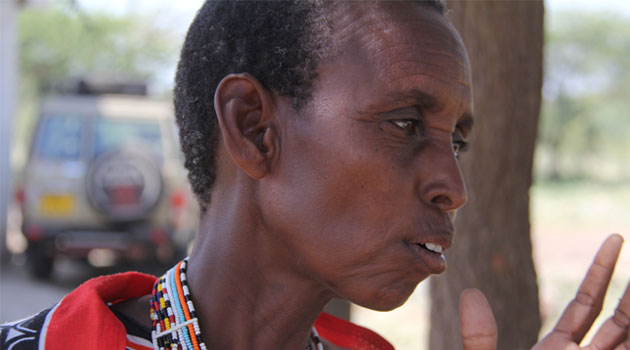“I was given a sheep’s fat tail. It has a lot of fat and that is the fat I would extract and drink,” she recalled and she laughed as if wondering if the fat was really worth enough to make her cut a girl’s genitalia.
Salome Kirunwa, a grandmother of five girls says FGM was carried out due to lack of knowledge backed by their culture.
She says she initially supported FGM because it was their culture.
“In my days we believed FGM made a girl strong to become a woman. That’s why we were for it. Now we know it is not good but people still want to do it. I have four daughters, they are now mothers, I made them undergo FGM because I didn’t know it’s bad but I will not let my granddaughters to be cut,” Kirunwa says.
She recalls the painful experience which she has now learnt was lethal and unnecessary.
“That cut is very painful. You feel pain all the way to your head. Some female cutters tie your legs so that you don’t jump, you cry and cry, when giving birth you also suffer.”

Kirunwa believes if women use their experiences to teach on the dangers of the awful practice, soon there will be no more girls undergoing the cut/FILE
Kirunwa believes if women use their experiences to teach on the dangers of the awful practice, soon there will be no more girls undergoing the cut.
Like a success story, she has added her voice to the wishes of women like Doros and Kapande who are determined to preserve the good side of the Maasai culture but abandon the practice of FGM that has tainted the image of the community.
Today Doros and Kapande regret the career path they chose a few years ago in the name of transiting girls to marriageable women.
They have now capitalised on their popularity as ‘former female cutters’ and Traditional Birth Attendants (TBAs) to convince their Maasai community to stop FGM.
Their communities also utilise them as TBAs who help pregnant women to go to health centres for child birth.
“AMREF trained us on how we can help mothers who are delivering. So sometimes when we are escorting them to hospital to give birth and in case of an emergency we have gloves and we know how we can help,” Doros explains.
As the world marks the 14th International Day of Zero Tolerance to FGM, stories of the likes of Doros, Kapande and Kirunwa will be remarkable achievements and part of the spirited campaigns executed by various players to save the girl child from harmful practices of FGM and underage marriages.
The UN launched the International Day of Zero Tolerance to FGM on February 6, 2003.









































